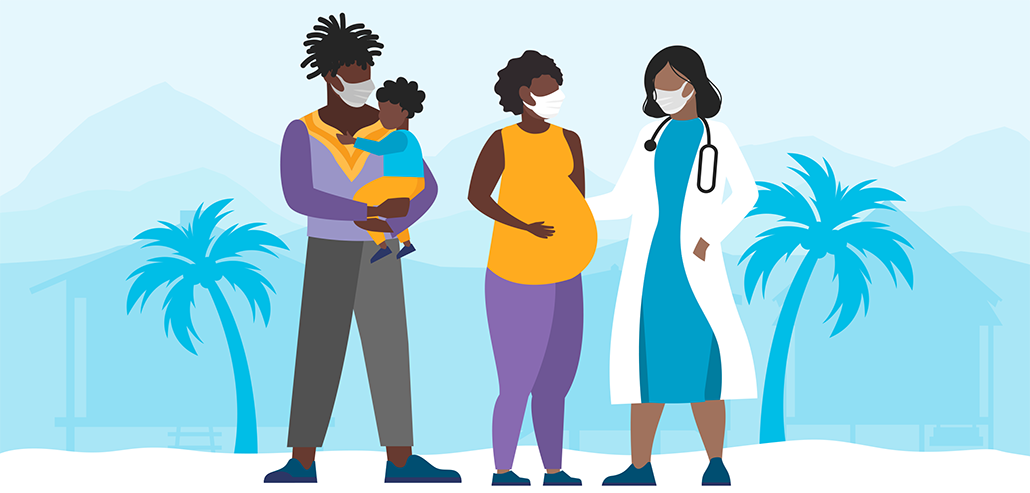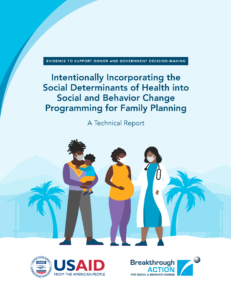
The field of social and behavior change (SBC) recognizes that factors beyond the biomedical model of health affect health and well-being at individual, household, community, and societal levels. However, to date, SBC interventions in family planning and reproductive health (FP/RH) have primarily focused on identifying and shifting behaviors in individuals, groups, and communities; therefore, SBC programs too often overlook the root causes of health disparities related to FP/RH and how SBC approaches can and should be used to address them.[1]
The purposes of this brief are to:
- Synthesize what is known about addressing the social determinants of health (SDOH) inequities in FP/RH.
- Propose considerations for future SBC programmingto address the SDOH inequities in FP/RH based on the existing evidence.
- Identify implementation research gaps that should be explored to support the use of SBC to address inequities in FP/RH that result from the SDOH.
This document provides evidence to guide strategic decision-making among donors and governments in support of SBC initiatives to reduce inequities in FP/RH. Though the brief focuses on examples from the field of FP/RH, its content is broadly applicable to SBC across all health and development areas. Breakthrough ACTION developed this brief alongside a programmatic tool with practical guidance for SBC practitioners. This resource contributes to work under the “supporting social change in family planning” priority in the Global Shared Agenda for SBC in Family Planning.
[1] While relevant programs have paid increased attention to normative dimensions (e.g., Social Norms Learning Collaborative and the Passages Project), policy, structural factors, and social accountability approaches have been explored to a far lesser extent.
LEARN MORE
RELATED RESOURCES
Expanding the “S” in SBC: Addressing Social Determinants of Health and Health Equity [ENGLISH / FRANÇAIS]
Measuring Equity in SBC Programming for FP and SRH [ENGLISH]
The Road to Equity in FP: Incorporating the Social Determinants of Health [ENGLISH]
MORE INFORMATION
Recorded Webinars
Why Do We Need to Elevate the S in SBC to Improve FP/RH Outcomes?
This webinar made a case for explicitly considering and addressing equity and social determinants of health in social and behavior change programming for family planning and reproductive health.
How Can SBC Programming Address Equity and Social Determinants of Health?
This webinar focused on how social and behavior change programming is well suited to addressing equity and social determinants of health in family planning/reproductive health.
How Can Incorporating Social Accountability Into SBC Improve Equity?
This webinar focused on social accountability as a critical process that can be further leveraged across social and behavior change programming to address equity and social determinants of health to shape and influence family planning and reproductive health outcomes.


